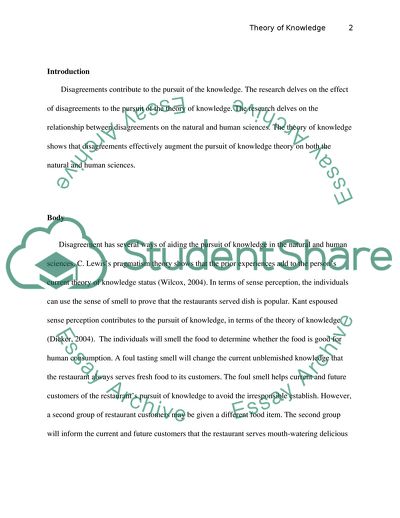Cite this document
(Theory Of Knowledge Essay Example | Topics and Well Written Essays - 1500 words, n.d.)
Theory Of Knowledge Essay Example | Topics and Well Written Essays - 1500 words. https://studentshare.org/philosophy/1792104-theory-of-knowledge-tok-in-what-ways-may-disagreement-aid-the-pursuit-of-knowledge-in-the-natural-and-human-sciences
Theory Of Knowledge Essay Example | Topics and Well Written Essays - 1500 words. https://studentshare.org/philosophy/1792104-theory-of-knowledge-tok-in-what-ways-may-disagreement-aid-the-pursuit-of-knowledge-in-the-natural-and-human-sciences
(Theory Of Knowledge Essay Example | Topics and Well Written Essays - 1500 Words)
Theory Of Knowledge Essay Example | Topics and Well Written Essays - 1500 Words. https://studentshare.org/philosophy/1792104-theory-of-knowledge-tok-in-what-ways-may-disagreement-aid-the-pursuit-of-knowledge-in-the-natural-and-human-sciences.
Theory Of Knowledge Essay Example | Topics and Well Written Essays - 1500 Words. https://studentshare.org/philosophy/1792104-theory-of-knowledge-tok-in-what-ways-may-disagreement-aid-the-pursuit-of-knowledge-in-the-natural-and-human-sciences.
“Theory Of Knowledge Essay Example | Topics and Well Written Essays - 1500 Words”. https://studentshare.org/philosophy/1792104-theory-of-knowledge-tok-in-what-ways-may-disagreement-aid-the-pursuit-of-knowledge-in-the-natural-and-human-sciences.


